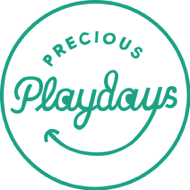1.1 Anti-Bullying Policy
What is bullying?
Bullying is not always easy to define, however, some indicators could include:
o Physical - pushing, kicking, hitting, pinching, and other forms of violence or threats.
o Verbal - name calling, sarcasm, spreading rumours, persistent teasing
o Emotional - excluding, tormenting, ridicule, or humiliation
o Racist - Racial taunts, graffiti, or gestures
o Social - unwanted physical contact or abusive comments
o Homophobic - any hostile or offensive action against the LGBTQ+ community
All the above forms of bullying cannot just be delivered on a personal, face to face basis, but also by using existing and new technology, known as cyber bullying. We can sum up bullying as actions taken by one or more people with the deliberate intention of hurting another person (in any of the above ways). This policy is designed to support the preschool behaviour policy, equal opportunities and anti-discrimination policies.
Aims and Objectives
o Bullying is wrong and is damaging to individual people. Precious Playdays proactively implements policies and procedures to prevent this, by developing a preschool culture in which bullying is regarded as unacceptable.
o We aim to deliver a safe and secure environment where all children can play and learn without fear or anxiety.
o This policy aims to produce a consistent response to any bullying incidents that may occur.
o We aim to make all those connected with the preschool aware of our opposition to bullying and staff have a responsibility to eradicate bullying in our preschool.
o We do not tolerate any kind of bullying as stated above on any grounds whatsoever, and support all parties involved to gain a full understanding of our ethos.
Rough and Tumble Play
Early childhood research has advocated the social importance of rough and tumble play and has separated it from inappropriate or aggressive behaviour. Television or films, which include superheroes, often influence young children or weapon play and they will mimic this behaviour through their play. We endorse the following strategies to manage this kind of play:
o Recognise that this is pro-social play rather than aggressive
o Set boundaries for the games to be set out in
o Use planning opportunities to discuss the concept of ‘appropriate’ and ‘inappropriate’ behaviours
o Support the play to find alternative solutions to weapon play, exploring different scenarios.
Hurtful Behaviour
Very young children are 'egocentric' which means that they put their own feelings before others, and even the most considerate child will have the occasional outburst due to frustration, anger or over exuberance. We acknowledge that this is a developmental area that needs to be nurtured and supported and that very young children do not intentionally wish to cause hurt. If hurtful comments are made, our strategies are:
o To recognise that very young children are not always able to manage their own feelings and deliver them appropriately
o Assist in this management to support their biological and cognitive development.
o Offer support to both parties and to discuss the issues through play, story times and circle time activities.
Anti - Bullying Procedure
The role of the manager
o It is the responsibility of the manager to implement the preschool anti-bullying strategy and to ensure that all staff (paid/unpaid) are aware of the policy and know how to deal with incidents of bullying.
o The manger ensures that all children begin to learn that bullying is wrong and that it is unacceptable behaviour in the nursery. The manager draws the attention of everyone to this fact through staff meetings and monitoring that this is being implemented on a regular basis.
o The manager ensures that all staff are in receipt of enough training to be equipped to deal with any incidents of bullying.
o The manager set the nursery climate of mutual support and praise for successes, so making bullying less likely. When people feel they are important and belong to a friendly and welcoming setting, bullying is far less likely to occur.
The role of staff
o Staff in the preschool take all forms of bullying seriously and intervene to prevent incidents from taking place. A record is kept of all incidents of bullying that happen in the nursery and these are shared with the manager.
o If staff witness an act of bullying, they will do all they can to support the person or persons who are being bullied. If a child is being bullied over a period, then, after consultation with the manager, the key worker informs the child's parent.
o For all incidents of bullying behaviour management form should be completed. We record all incidents of bullying that occur within the nursery.
o If practitioners become aware of any bullying taking place between members of a group, we deal with the situation immediately. This will involve supporting all parties to understand that this is not acceptable to be bullied, to be the recipient of bullying, and that the nursery will deal with the situation very seriously. If the patterns repeat of bullying the child's parents should be asked to meet with the manager.
The role of parents
o Parents, who are concerned that their child might be being bullied, or who suspect that their child may be the perpetrator of bullying, should contact the preschool manager immediately.
o Parents have a responsibility to support the nursery's anti bullying policy and actively encourage their child to be a positive member of the preschool.
o Parents are always expected to help develop their child’s social skills, in support of the preschool ethos.
Reviewed: 05/10/2021
